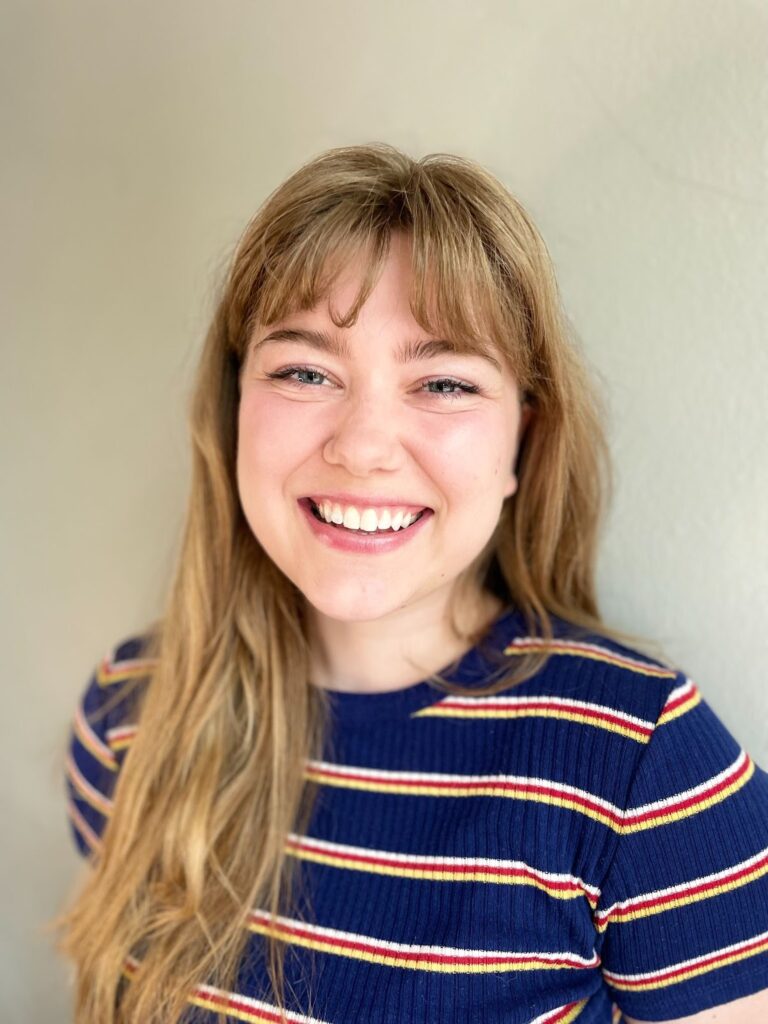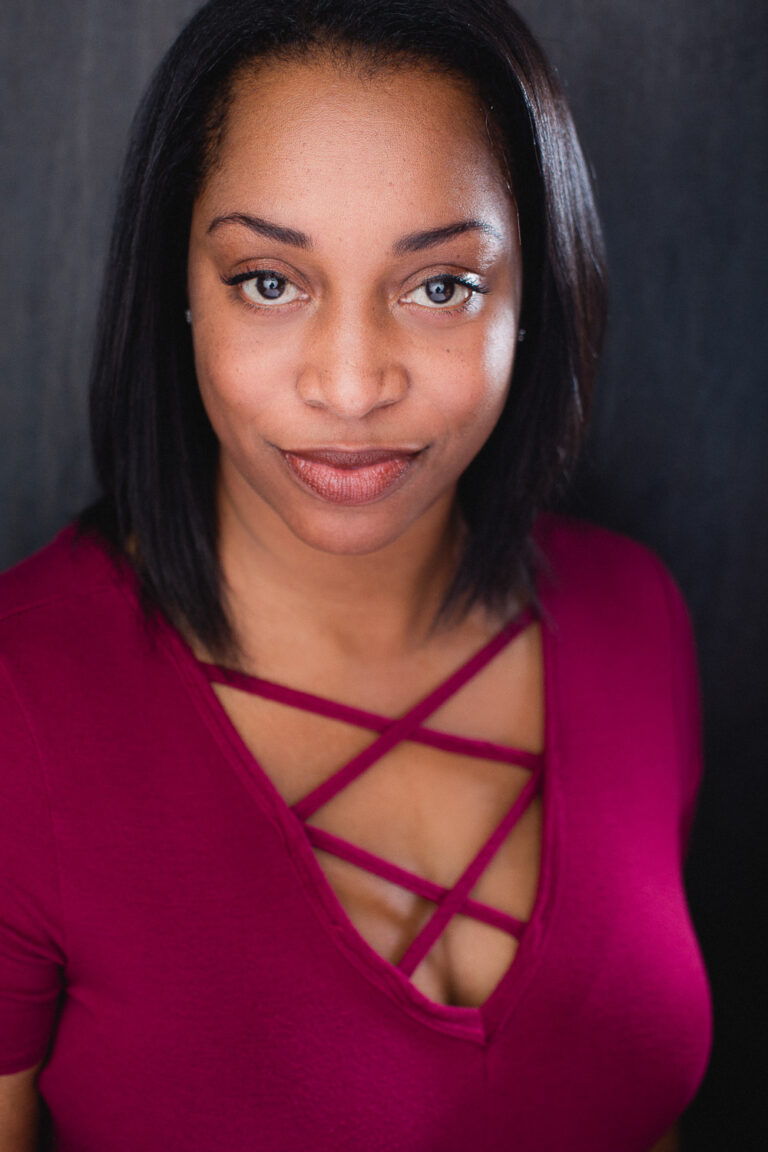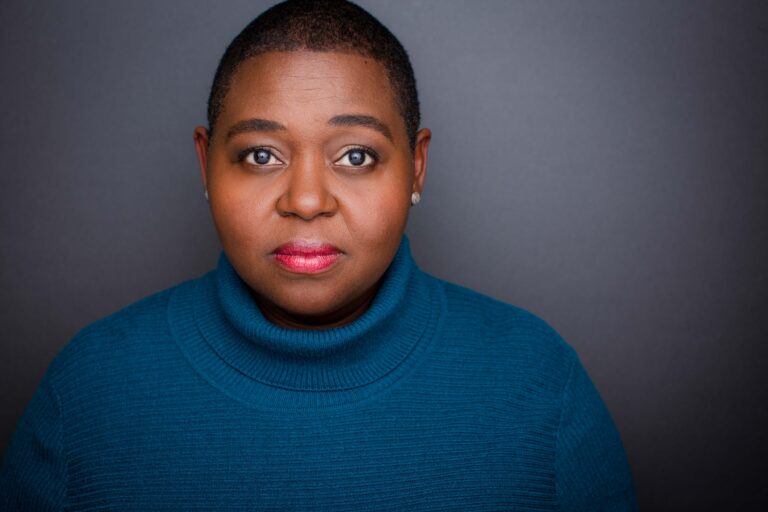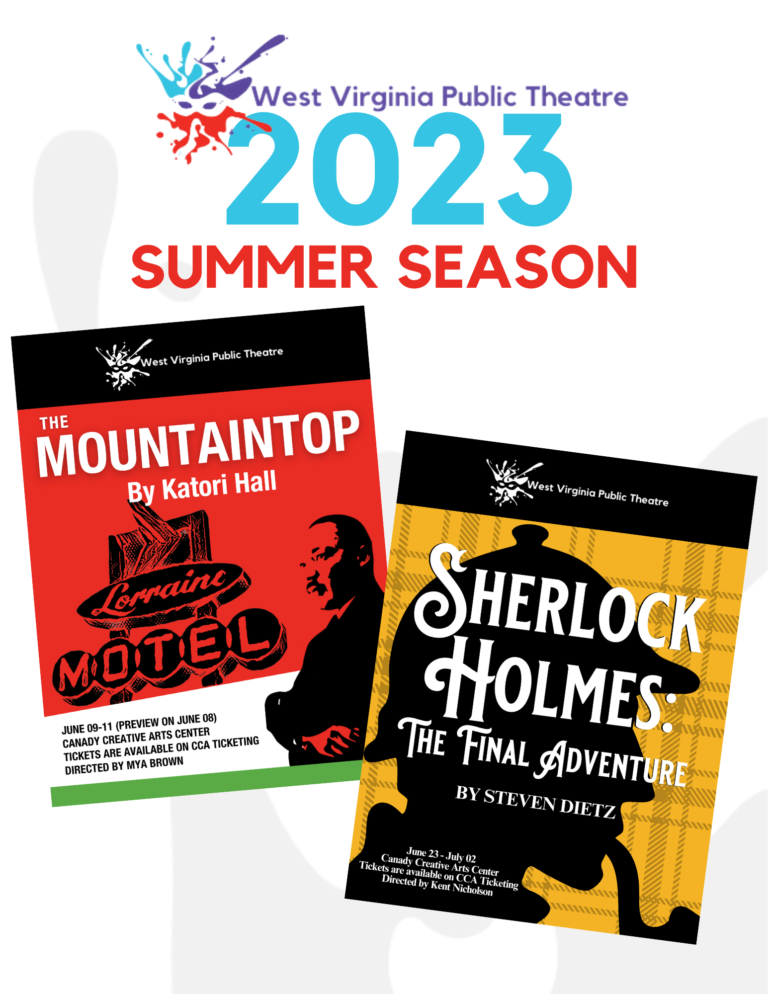
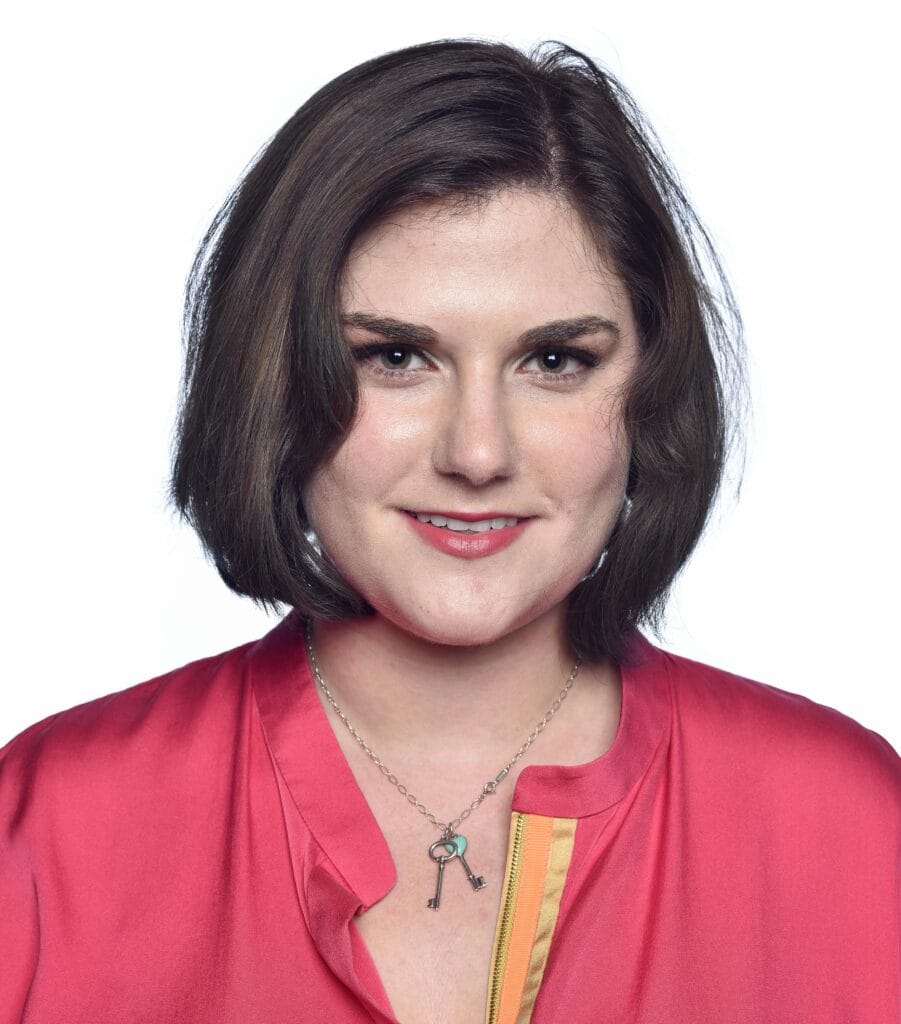
Interview with WVPT Production Manager Aubrey Sirtautas
Written by Micah C. Beachy
Aubrey Sirtautas is the Production Manager for West Virginia Public Theatre. Aubrey received her Bachelor of Arts in Computer Science from Rice University before transitioning into work in the arts and completing her Masters of Fine Arts in Stage & Production Management from Carnegie Mellon University. Since then, she has worked as a freelance stage manager for companies such as the Contemporary American Theatre Festival, Weston Playhouse Theatre, Broadway Project, and Broadway Workshop. She also served as a resident stage manager at Geva Theatre Center.
Aubrey has also working in non-traditional theatrical environments, including Cirque du Soleil’s Mystére, Dick Clark Productions’ Billboard Music Awards, The Academy of Country Music Awards, and opera productions of Cendrillon and Rinaldo.
She is a proud member of Actors’ Equity Association and has devoted her academic research and professional committee efforts to Equity, Diversity, and Inclusion in the regional environment.
Interviewer: Good evening Aubrey, it’s great to speak with you!
Aubrey: Hello! Happy to be here!
Interviewer: To start off, I have to know, what brought you to the WVPT team?
Aubrey: I loved the fact that it was a combination job of continuing to work in theatre at West Virginia Public Theatre while also teaching and being able to stage-manage one show a year. So I get to continue to do all the parts of my job that I love. In fact, WVPT is what attracted me to West Virginia University.
Interviewer: What project have you enjoyed working on most so far and why?
Aubrey: I really enjoyed the “Letter from Birmingham Jail” project. I don’t have a lot of experience with any project with WVPT yet but I liked the fact that when first I got here, we were already working on this thing that was new and innovative and I loved the fact that we could do work that was inspirational and thought-provoking in a way that was super accessible to a lot of people.
Interviewer: What do you like most about your role with WVPT?
Aubrey: I like that this position (Production Manager) is relatively new, someone did it last year but before that, it wasn’t formalized in the way it is now. So, I love the fact that everyone is willing to work with me to create new systems and structures to help Public Theatre grow. I think it’s a great opportunity for me and I think it’s a great opportunity for the theatre, and I look forward to seeing how we progress over the next few years.
Interviewer: Seeing how things will grow and flourish especially after the pandemic has to be exciting.
Aubrey: Yeah and I think there is this really wonderful opportunity that we have coming out of the pandemic to reframe who we are as a company. I think this is an opportunity that all theatres have. Because we’ve had all these months of not doing work except for reflecting on the organization. So you really get streamlined and think: what are our core values? All non-profit organizations have them but we have a great opportunity to look at them and say, is this actually what we do? Is this what we want to? So I’m really excited to see how we come out of this not only as a theatre rebounding after the pandemic but also using this time to our advantage.
Interviewer: What’s it been like trying to keep theatre alive during the pandemic?
Aubrey: Exhausting. That’s how I would describe it in a single word. But again, I am on a couple of different forums and groups and I think it’s a really wonderful moment to redefine what works and what doesn’t in our industry. For instance, there is this huge push right now looking at 10 out of 12, which is a part of the equity contract that actors get to work 10 hours out of a 12 hour day. So for stage managers and technicians, that’s a lot more hours than 12, usually, it’s a 16 to 18 hour day. Through the pandemic, when everyone has gone home and seen how nice it is to be with their families and have time off and have a life outside of work. So everyone is realizing they don’t want to give that up and that things like 10 out of 12 are really holding us back and its causing people who would otherwise be really really great in the industry to leave because they’re not willing to compromise their personal lives for the sake of working an 18 hour day. Also, a 6 day work week, that’s another issue that’s come up.
Interviewer: So you’re saying that there is no need for these hours?
Aubrey: Yeah there’s no need. Looking at our schedule and saying why do we have to work 6 days a week. Can we hire people for an extra week and make them work 5 days a week.
Interviewer: What’s been your biggest obstacle working during the pandemic and trying to produce new work?
Aubrey: Well I think part of it is that I’m new. Interestingly enough, I have met almost no one in person. Charlotte, our Operations Manager, I met for the first time in the middle of ‘A Christmas Carol’. I had never met her in person before that except for my interview here, and I meet with Charlotte twice a week.
Interviewer: What’s been your biggest success since starting at WVPT?
Aubrey: So I am pretty technologically savvy. My background is actually in computer science, I came to the theatre in kind of a pure way. But people have been so willing to work with me and making ourselves more streamlined and moving forward in terms of technology that also helps in terms of being able to work more efficiently during this time because we’re not together. We can’t just hand off a paper to someone in the next office so everyone has been really open in working with me and adapting to some of those structures here and at the University. Everyone is willing to learn and I think we’ve had a lot of success, in terms of how we connect. One of the things I’ve been thinking about a lot is programs, like Playbill. Do we really need them? They’re expensive to print and everyone has their cell phone on them. So is there a cool way, like with QR codes, that we could have a digital playbill except for a limited number of paper copies for people who don’t have cell phones or have a hard time reading on the phone? But is there a way we can make it digital and save some trees and money and also some time? So thinking about those things and figuring out how we can progress in that way too.
Interviewer: Without giving away too much, what can we expect from WVPT in the coming year?
Aubrey: I expect to see growth. I’m not exactly sure what that looks like yet but I think we’re looking at the structure of how we have done things in the past and asking does it have to be done that way? and does it have to look the way it has traditionally been produced in the past?
Interviewer: So moving away a little from WVPT, what has been your favorite show you have ever worked on and why?
Aubrey: I have two favorites. I have a non-traditional favorite and a traditional one. So I worked for Cirque du Soleil and I loved working for Cirque because it was fun, interesting, and different. There was never a dull moment, well sometimes there was.
Interview: Which show did you work on for Cirque?
Aubrey: Mystére. It’s a beautiful show and I loved learning about how different circus acts came together to make the show that it is now. I loved working in an international environment, working with a bunch of people who speak a bunch of different languages. I thought all of that was really cool. I was there for about a year and I loved it. My favorite theatrical piece that I’ve worked on was Ragtime. It was the last show I did during grad school and it was a really wonderful combination of things. The director was wonderful, Ragtime is also just a timely, beautiful piece and you have to have the exact, right cast because it’s a lot of people and they fill a lot of different roles but it is timeless. You listen to it and it sounds very classic but it’s actually very contemporary at the same time and I think that’s really wonderful. I cried almost every night while calling it.
Interview: What is your dream show/play to work on?
Aubrey: Dream play? I don’t know that I have a specific one and I think it’s because after I left Cirque I kinda ended up on a circuit of working with new plays. So I don’t have one specifically because I just wanna see what comes next. I love working on new plays, sometimes they’re terrible, I won’t lie. Sometimes you read a script and you’re like wow this is horrible but other times you get this gem and you get to be a part of a project that will eventually be published and that is so cool. Again, forward motion, growth, apparently that’s my theme.
Interviewer: Thanks so much for your time and thoughtful answers
Aubrey: Thank you so much.
For updates on all things happening at WV Public Theatre, follow us on social media platforms @wvpublictheatre.
